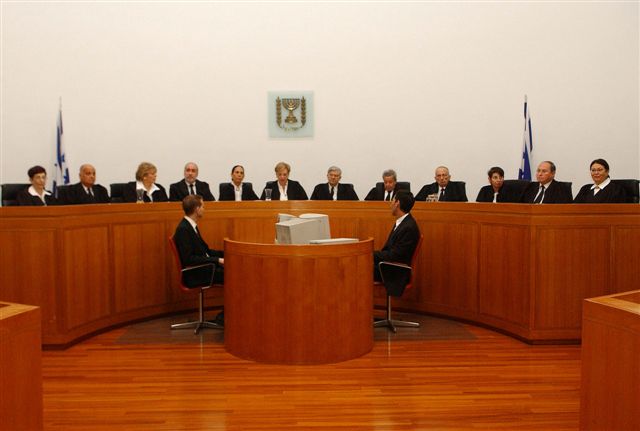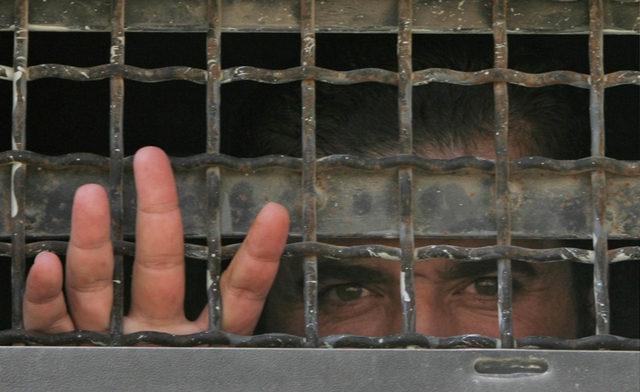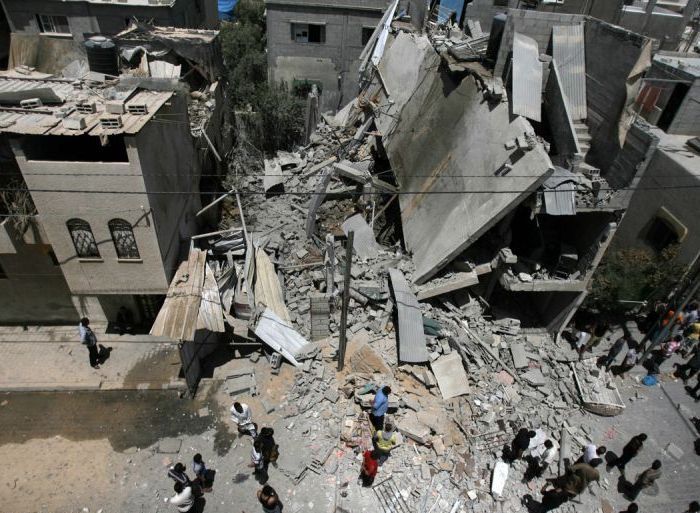UN Human Rights Committee Raises Issues on Israel
On 29 July 2010, the UN Human Rights Committee, which monitors the implementation of the International Covenant on Civil and Political Rights (ICCPR), issued its Concluding Observations on Israel. The Concluding Observations addressed many of the issues brought before the Committee by Adalah, Physicians for Human Rights-Israel (PHR-Israel) and Al Mezan Centre for Human Rights in their two joint NGO reports, and in oral interventions provided by Adalah Attorney Orna Kohn and PHR-Israel's Advocacy Director Amiram Gil during the Committee's review sessions in Geneva. Al Mezan was unable to send a representative to the review due to complications caused by Israel's illegal blockade of Gaza.
In the Concluding Observations, the Committee found a large number of violations of Israel's obligations under the ICCPR. It voiced concerns about Israeli laws, policies and practices that constitute violations of the rights of Palestinians in the Occupied Palestinian Territory (OPT), including torture and ill-treatment. The Committee reiterated its criticism of Israel for the lack of any disaggregated information concerning its compliance with the Covenant in the OPT, a territory that is effectively under Israel's control and occupation. It made a series of recommendations to Israel about how to ensure the protection of the rights of Palestinians being held in Israeli detention centers and prisons and of Palestinian civilians in the OPT, in line with its obligations under the ICCPR.
The Committee called on Israel, inter alia, to: incorporate the crime of torture into its domestic legislation; refrain from using administrative detention; ensure that all detainees have immediate access to a lawyer; repeal the Detention of Unlawful Combatants Law; reinstate the family visit program for prisoners from the Gaza Strip; lift its military blockade of the Gaza Strip; launch credible, independent investigations intoserious violations of international lawduring Operation Cast Lead; end its practice of extra-judicial executions; and cease its practice of collective punitive home and property demolitions.
The Committee's concluding observations and recommendations included the following issues raised by Adalah, PHR-Israel and Al Mezan:
Torture and ill-treatment
- Israel should incorporate into its legislation the crime of torture and completely remove "necessity" as a possible justification for the crime of torture.
- The Committee is concerned at consistent allegations of the use of torture against Palestinian detainees suspected of security-related offences, and at allegations of complicity or acquiescence of medical personnel with the interrogators. Only a few cases result in criminal investigations and sentences.
- The Committee is concerned that the Inspector for complaints against Israel Security Agency (ISA) interrogators is a staff member of the ISA and that no complaint has been criminally investigated in the reporting period.
- The Committee notes with concern that allegations against members of the Israel Defence Forces are being investigated by the Investigative Military Police, a unit subordinate to the Head of General Staff of the armed forces.
- The State party should ensure that all alleged cases of torture and disproportionate use of force by law enforcement officials are thoroughly and promptly investigated by an authority independent of any of these organs, that those found guilty are punished with sentences that are commensurate with the gravity of the offence, and that compensation is provided to the victims.
Administrative detention
- The State party should refrain from using administrative detention, in particular for children, and ensure that detainees' rights to fair trial are upheld at all times.
- The State party should grant administrative detainees prompt access to counsel of their own choosing, inform them immediately, in a language which they can understand, of the charges against them, provide them with information to prepare their defence, bring them promptly before a judge and try them in their presence.
Anti-terrorism legislation
- The State party should ensure that definitions of terrorism and security suspects are precise and limited to countering of terrorism and the maintenance of national security and are in full conformity with the Covenant.
- All legislation, regulations and military orders should comply with the requirements of the principle of legality with regard to accessibility, equality, precision and non-retroactivity.
- Any person arrested or detained on a criminal charge, including persons suspected of security-related offences, should have immediate access to a lawyer.
- A decision of postponement in accessing a lawyer or a judge should be able to be challenged before a court.
The Detention of Unlawful Combatants Law
- Israel should repeal the Detention of Unlawful Combatants Law.
Ban on contact between prisoners and their families
- Israel should reinstate the family visit program supported by the International Committee of the Red Cross for prisoners from the Gaza Strip and enhance the right of prisoners suspected of security-related to maintain contact with their families, including by telephone The Committee expressed its concern that the Israeli Supreme Court upheld the ban on family visits to Palestinian prisoners in Israel and that detainees suspected of security-related offences are not allowed to maintain telephone contact with their families.
The blockade on Gaza
- The Committee is concerned at the effects of the blockade on the civilian population in the Gaza Strip, including restrictions to their freedom of movement, some of which led to deaths of patients in need of urgent medical care, as well as restrictions on the access to sufficient drinking water and adequate sanitation. Israel should lift its military blockade of the Gaza Strip, insofar as it adversely affects the civilian population.
"Operation Cast Lead"
- The State party's armed forces have opened few investigations into incidents involving alleged violations of international humanitarian law and human rights law during its military offensive in the Gaza Strip, which led to one conviction and two indictments.
- The Committee notes with concern that the majority of the investigations was carried out on the basis of confidential operational debriefings.
- The State party has not yet conducted independent and credible investigations into the serious violations of international human rights law, such as direct targeting of civilians and civilian objects, including infrastructure such as waste water plants and sewage facilities, use of civilians as "human shields", refusal of evacuation of wounded, firing live bullets during demonstrations against the military operation and detention in degrading conditions.
- The State party should launch credible, independent investigations into the serious violations of international human rights law.
- All decision makers, be they military and civilian officials, should be investigated and where relevant prosecuted and sanctioned.
The Israeli military attacks on the Freedom Flotilla
- The Committee notes with concern the use of force when boarding vessels carrying humanitarian aid for the Gaza Strip, which resulted in the death of nine individuals and the wounding of several others.
- The Committee is concerned at the absence of independence of the commission of inquiry and the prohibition to question the officials of the State party's armed forces involved in the incident.
- The State party should invite an independent, international fact-finding mission to establish the circumstances of the boarding of the flotilla, including its compatibility with the Covenant.
Extra-judicial executions
- The Committee reiterates its concern that, since 2003, the State party's armed forces have targeted and extra-judicially executed 184 individuals in the Gaza Strip, resulting in the collateral unintended death of 155 additional individuals. The State party should end its practice of extra-judicial executions of individuals suspected of involvement in terrorist activities.
- It should further ensure that utmost care is used to protect every civilian's right to life, including civilians in the Gaza Strip.
- The State party should establish an independent body to promptly and thoroughly investigate complaints about disproportionate use of force.
Home demolitions and unjust housing policies
- The Committee is concerned at frequent administrative demolition of property, homes, as well as schools in the West Bank and East Jerusalem, and at discriminatory municipal planning systems, in particular in "area C" of the West Bank, as well as East Jerusalem, disproportionately favouring the Jewish population of these areas.
- The Committee reiterates that the State party should cease its practice of collective punitive home and property demolitions.
- The State party should review its housing policy and issuance of construction permits with a view to implementing the principle of non-discrimination regarding minorities, in particular Palestinians and to increasing construction on a legal basis for minorities of the West Bank and East Jerusalem.
Regarding the applicability of the ICCPR to the Occupied Territories, the Committee concluded that, contrary to the State party's position, in the current circumstances, the provisions of the Covenant apply to the benefit of the population of the occupied territories, including in the Gaza Strip, for all conduct by the State party's authorities or agents in those territories affecting the enjoyment of rights enshrined in the Covenant. It recommended that the State party should ensure the full application of the Covenant in Israel as well as in the occupied territories, including the West Bank, East Jerusalem, the Gaza Strip and the occupied Syrian Golan Heights.
Many of the Human Rights Committee's recommendations echo the recommendations of the Committee Against Torture (CAT), which reviewed Israel in 2009, and which the three organizations also provided with information.
All NGO, State party and Human Rights Committee documents are available at:
http://www2.ohchr.org/english/bodies/hrc/hrcs99.htm.















